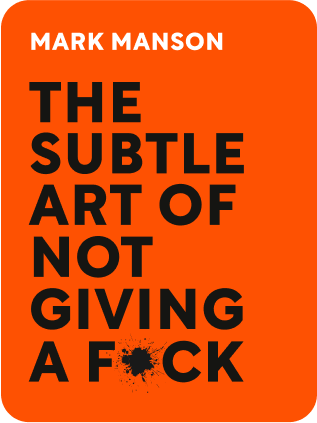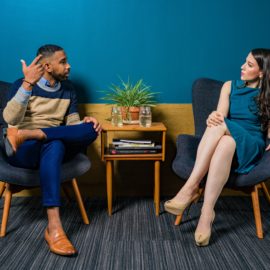

This article is an excerpt from the Shortform book guide to "The Subtle Art of Not Giving a F*ck" by Mark Manson. Shortform has the world's best summaries and analyses of books you should be reading.
Like this article? Sign up for a free trial here .
Are you afraid you’ll look silly if you make a mistake? How can being wrong actually be a good thing?
In The Subtle Art of Not Giving a F*ck, Mark Manson writes about the benefits of being wrong. He says that being wrong allows you to grow from your mistakes and instead of always trying to be right, we should be striving to be less wrong than we were yesterday.
Keep reading to learn why it’s okay to be wrong.
It’s Okay to Be Wrong
In order to grow we need to entertain doubt about our beliefs, feelings, and rightness. Instead of trying to prove we’re right, we should look for ways we’re wrong so we see where we can grow.
In fact, much of what we believe or think we know is wrong. That’s been the case throughout human history. Astronomers once believed the sun revolved around the earth. People also once believed in useless and dangerous health remedies, like leeches and lobotomies.
As children, we believe crazy things that seem logical to us but turn out to be wrong. As adults we believe wrong things about ourselves, other people, and society. Years from now people will shake their heads at what we thought were certainties, like we do over discredited beliefs from years ago. It’s okay to be wrong, it’s part of being human.
Failure Leads to Success
Willingness to learn and change our beliefs is a lifelong growth process. For example, Michael Jordan noted that he failed over and over and over — and that’s why he succeeded.
We never reach perfection in terms of knowledge or certainty. Learning is a gradual process, where we build on what we learned before. When we learn, we go from being wrong to being less wrong (rather than jumping from wrong to right), and then less wrong again.
Rather than striving for the “right” answer, we should improve what we know little by little, so that tomorrow we’re less wrong than we are today.
You can think of personal growth as a trial-and-error process similar to the scientific method. Values = our hypotheses; actions = the experiment; the resulting feelings and thoughts = data. But no one’s experiment is replicable. We all arrive at unique answers for ourselves. What we determine to be right for us should change with growth.
Don’t get fixated on being right — if you’re afraid to discard certainties and values that aren’t serving you, you’ll stay stuck and won’t improve your life.
For example, suppose a woman is lonely and wants a partner, but doesn’t do anything to make that happen because she’d have to face her beliefs about her attractiveness. So she avoids that discomfort in the short term but at the expense of future happiness. If she instead faced and reframed her beliefs about herself, she could grow and improve her life.
When we stick with erroneous beliefs because we assume we’re right, our certainty stands in the way of growth and happiness.
This applies not just to our fundamental beliefs or values, but also to our temporary impressions. When we define an experience as positive or negative, we can be wrong about it. Sometimes a distressing experience ends up changing our lives for the better, or a seemingly positive experience derails us. The only thing we know is how something feels in the moment.

———End of Preview———
Like what you just read? Read the rest of the world's best book summary and analysis of Mark Manson's "The Subtle Art of Not Giving a F*ck" at Shortform .
Here's what you'll find in our full The Subtle Art of Not Giving a F*ck summary :
- How to clarify what's important to you (and not just what you think should be important)
- Why it's okay for things to not always go well in life
- Why you need to care about fewer things






